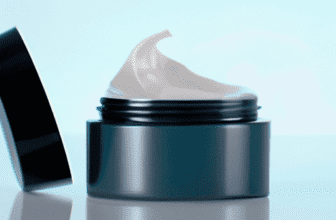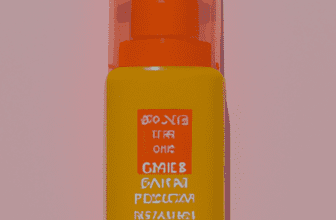Understanding SPF: How to Choose the Right Sunscreen for Your Skin
-
Table of Contents
- Understanding SPF: How to Choose the Right Sunscreen for Your Skin
- Key Takeaways
- Introduction: The Sunscreen Spectrum
- Decoding SPF: What Does It Mean?
- Choosing the Right SPF for Your Skin
- The Role of Sunscreen in a Skincare Routine
- Benefits of Regular Sunscreen Use
- FAQ Section
- 1. What is SPF?
- 2. How do I choose the right SPF for my skin?
- 3. Should I use sunscreen every day?
- 4. What are the benefits of using sunscreen?
- 5. What are some dermatologist-approved sunscreen products?
- Conclusion: The Power of Protection
- Key Takeaways Revisited
Understanding SPF: How to Choose the Right Sunscreen for Your Skin

[youtubomatic_search]
Key Takeaways
- Understanding the meaning and importance of SPF in sunscreens.
- How to choose the right SPF for your skin type.
- The role of sunscreen in a skincare routine.
- Benefits of using sunscreen regularly.
- Dermatologist-approved sunscreen products.
Introduction: The Sunscreen Spectrum
With the increasing awareness about skin health and the harmful effects of the sun’s ultraviolet (UV) rays, sunscreen has become a crucial part of our daily skincare routines. However, the myriad of options available in the market, each with different Sun Protection Factor (SPF) levels, can be overwhelming. This article aims to demystify SPF and guide you in choosing the right sunscreen for your skin.
Decoding SPF: What Does It Mean?
SPF, or Sun Protection Factor, is a measure of how well a sunscreen can protect your skin from UVB rays, the kind of radiation that causes sunburn and contributes to skin cancer. According to the American Academy of Dermatology, an SPF 30 sunscreen blocks 97% of UVB rays, while an SPF 50 sunscreen blocks 98% of UVB rays. However, no sunscreen can block 100% of UVB rays.
Choosing the Right SPF for Your Skin
Choosing the right SPF depends on several factors, including your skin type, the intensity of sun exposure, and the duration of sun exposure. For instance, if you have fair skin that burns easily, you might need a higher SPF. Similarly, if you plan to be outdoors for an extended period, a higher SPF would be beneficial. The American Academy of Dermatology recommends using a sunscreen with an SPF of at least 30, which blocks 97% of UVB rays.
The Role of Sunscreen in a Skincare Routine
Sunscreen is not just for beach days. Dermatologists recommend incorporating it into your daily skincare routine, even on cloudy days, as UV rays can penetrate clouds. Regular use of sunscreen can protect your skin from premature aging, sunburn, and skin cancer. It should be applied as the last step in your skincare routine before makeup.
Benefits of Regular Sunscreen Use
Regular use of sunscreen has numerous benefits. It not only protects your skin from harmful UV rays but also prevents premature aging, reduces the risk of skin cancer, and helps maintain an even skin tone. A study published in the Journal of Clinical Oncology found that regular sunscreen use reduced the incidence of melanoma, the most deadly form of skin cancer, by 50% to 73%.
FAQ Section
1. What is SPF?
SPF stands for Sun Protection Factor. It measures the level of protection a sunscreen offers against UVB rays, which cause sunburn and contribute to skin cancer.
2. How do I choose the right SPF for my skin?
Choosing the right SPF depends on your skin type, the intensity of sun exposure, and the duration of sun exposure. Dermatologists recommend using a sunscreen with an SPF of at least 30.
3. Should I use sunscreen every day?
Yes, dermatologists recommend using sunscreen every day, even on cloudy days, as UV rays can penetrate clouds.
4. What are the benefits of using sunscreen?
Regular use of sunscreen protects your skin from harmful UV rays, prevents premature aging, reduces the risk of skin cancer, and helps maintain an even skin tone.
5. What are some dermatologist-approved sunscreen products?
Some dermatologist-approved sunscreen products include Neutrogena Ultra Sheer Dry-Touch Sunscreen SPF 100+, EltaMD UV Clear Facial Sunscreen SPF 46, and La Roche-Posay Anthelios Melt-In Sunscreen Milk SPF 60.
Conclusion: The Power of Protection
Understanding SPF and choosing the right sunscreen for your skin is crucial for maintaining skin health. Regular use of sunscreen, as part of your daily skincare routine, can protect your skin from harmful UV rays, prevent premature aging, and reduce the risk of skin cancer. Remember, it’s never too late to start protecting your skin.
Key Takeaways Revisited
- SPF is a measure of how well a sunscreen can protect your skin from UVB rays.
- Choosing the right SPF depends on your skin type, the intensity of sun exposure, and the duration of sun exposure.
- Sunscreen should be an integral part of your daily skincare routine.
- Regular use of sunscreen can protect your skin from harmful UV rays, prevent premature aging, and reduce the risk of skin cancer.
- Some dermatologist-approved sunscreen products include Neutrogena Ultra Sheer Dry-Touch Sunscreen SPF 100+, EltaMD UV Clear Facial Sunscreen SPF 46, and La Roche-Posay Anthelios Melt-In Sunscreen Milk SPF 60.
[youtubomatic_search]
Tags: Loading...





